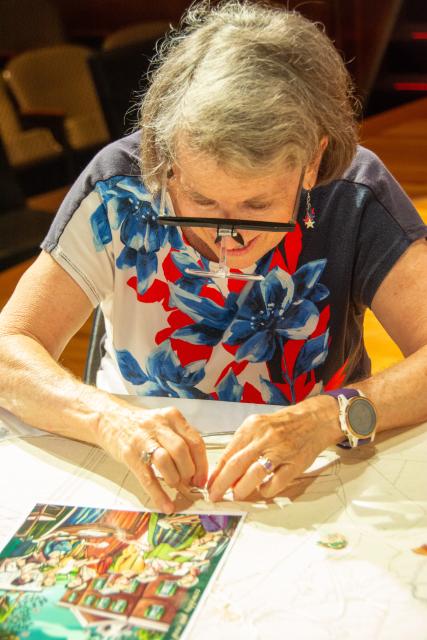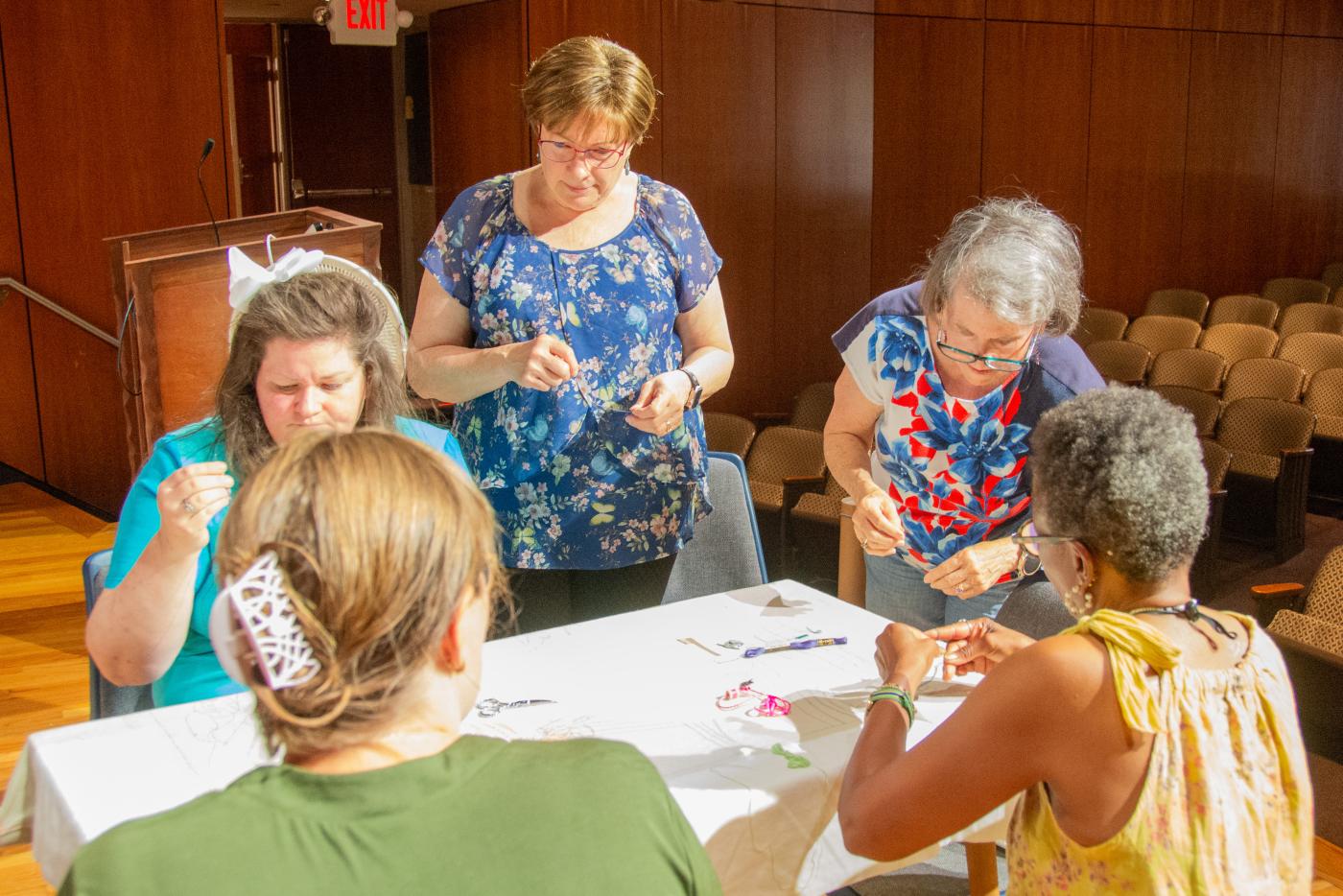As we approach the 250th anniversary of the United States, artists, historians, and everyday citizens are finding new ways to reflect on the nation’s founding. One such creative undertaking is America’s Tapestry, a collaborative, handcrafted exhibition led by 27-year-old artist and researcher Stefan Romero.
A graduate of Carnegie Mellon University’s College of Fine Arts and a Fulbright Scholar with a master’s degree from the University of Glasgow, Romero is combining research and craftsmanship to tell a richer story of the American Revolution, one stitch at a time.
With the support of William & Mary, Seton Hill University, and a network of historical and craft organizations, Stefan is coordinating the creation of 13 hand-embroidered panels, one for each of the original colonies. These panels aim to highlight diverse and often overlooked contributions to the fight for independence.

The North Carolina panel focuses on the Edenton Tea Party Resolves, a bold and early act of protest by women in colonial America. In 1774, 51 women led by Penelope Barker signed a resolution pledging to boycott British tea and textiles in defiance of the Tea Act and other unfair measures imposed by the Crown. It remains one of the earliest recorded political actions taken by women in the American colonies.
Under the guidance of Gail Smith from the Embroiderers Guild of America, work on the North Carolina panel began this year. Talented stitchers gathered at the Archives and History Building in Raleigh, where staff from across the NC Department of Natural and Cultural Resources eagerly took turns adding to the work. The scene buzzed with camaraderie, concentration, and care as volunteers contributed tiny but powerful stitches to flowing skirts, detailed architectural elements, and delicate textile patterns.
The America 250 North Carolina initiative is proud to help steward this panel across the state, allowing more communities to witness and contribute to the creation of this one-of-a-kind textile history project.
If your museum, historic site, or community organization is interested in hosting the panel and its stitchers, contact LeRae Umfleet at lerae.umfleet@dncr.nc.gov.
Together, we’re not just remembering history. We’re weaving it into the legacy of North Carolina’s role in America’s founding.

